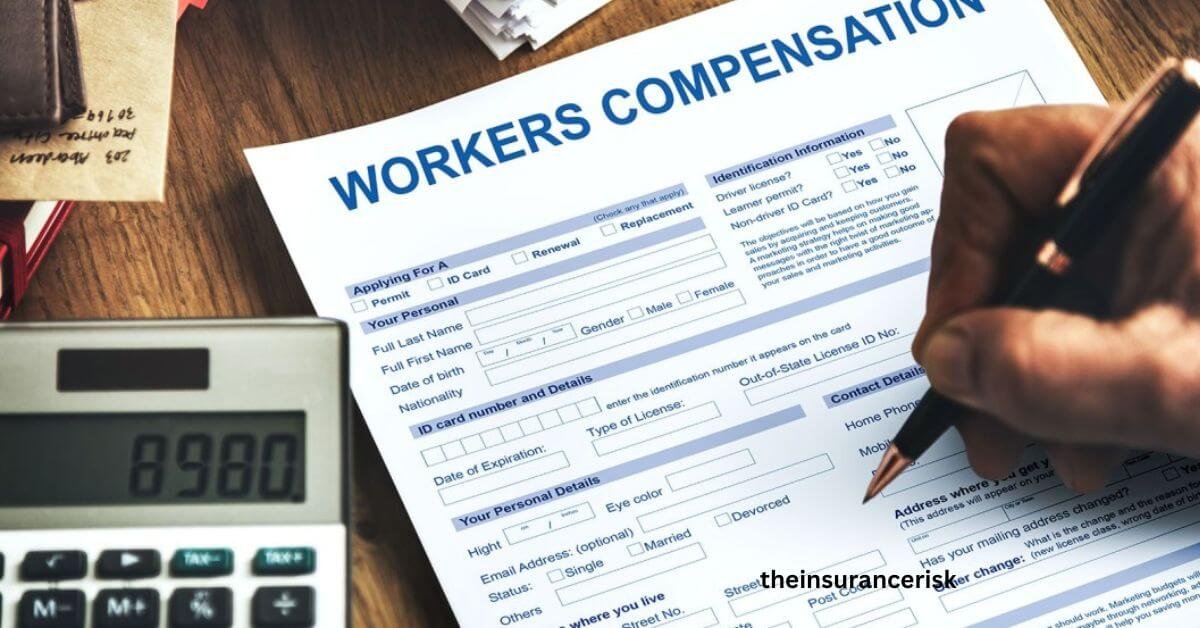Unlocking the Essentials: Your Guide To Workers’ Compensation Insurance Explained
Workers’ compensation insurance is like a safety net for when you get hurt or sick because of your job. It helps with medical bills and money you might lose when you can’t work. Almost every state says businesses with employees have to have this insurance. So, it’s like a rule to keep everyone protected.
Workers’ Compensation And Why It Is Important
Workers’ compensation insurance is like a safety net for when you get hurt or sick because of your job. It helps with work-related injuries and illnesses, which can get expensive due to high medical fees.
Each state has its rules about workers’ comp, but getting this insurance is a good idea if you are running a small business and hiring your first employee or hitting a certain number of workers.
Even if the law doesn’t make you get it, having workers’ compensation insurance is smart. It keeps you safe from big medical bills and employee lawsuits if you get hurt at work, like slipping in the office, getting injured by tools, or getting a job-related illness.
Workers’ compensation insurance is there for you if you or one of your employees needs medical help or time off because of a work injury. It’s like a backup plan. Workers’ comp has your back if someone gets hurt at work and decides to sue you for not preventing the accident.
If you don’t have workers’ compensation insurance, your business has to handle all the medical bills and legal costs. And that’s not all. Most states will hit you with fines if you don’t follow the rules. So, having workers’ compensation insurance is not just a good idea. It’s a safety net for your business.
Small Businesses Find Workers’ Comp Essential For Three Reasons:
Almost every state says you need workers’ comp coverage.
It pays for medical bills and some of the wages you lose if you get hurt at work.
Workers’ comp policies usually also help with the expenses of lawsuits from employees hurt on the job.
Workers’ Compensation Insurance Coverage Included
Covering The Costs of Health Care
Workers’ compensation insurance covers the bills when something happens at work, like needing an ambulance or emergency room. It also pays for surgeries and other medical stuff. And it doesn’t stop there if you need medicine or rehab. It’s got your back for that, too. It’s like a safety net for your health when work gets tough.
Getting Help When You Can’t Work
If someone gets seriously hurt at work, they might not be able to go back for days, weeks, or even months. Workers’ compensation insurance helps them by paying part of their wages while they get better. It’s like a helping hand during tough times at work.
Help For Families: Compensation In Case of Fatal Injuries
Workers’ compensation insurance steps in if someone passes away because of something that happened at work. It helps with the costs of the funeral and gives support to the family left behind. It’s like a safety net for the tough times when work turns into something sad.
Dealing With Legal Matters After Work Injuries
Workers’ compensation insurance usually comes with something called employer’s liability insurance. This particular type of insurance helps protect bosses from lawsuits connected to work injuries.
Let’s say a worker says their injury happened because the workplace wasn’t safe enough. If they decide to sue their boss, this coverage steps in to help pay for:
The costs for lawyers, money to cover court expenses, and the payments decided in court or through agreements.
The Price Tag On Workers’ Compensation Insurance
On average, it’s around $45 each month. That’s what most people pay for this insurance. And 23% of small businesses pay even less, like under $30 monthly.
Now, the cost for your workers’ comp is figured out using a few things, like:
- Payroll
- Location
- Number of employees
- Industry and risk factors
- Coverage limits
- Claims history
The Law Requires Workers’ Comp Insurance.
Every state has its rules about workers’ compensation insurance, which come with different consequences if you don’t follow them. In most places, once a business hires its first employee, it needs workers’ comp. But in some states, it might be two, three, or more employees before it’s necessary. Some jobs, like being a real estate agent or working in agriculture, might be delicate without it.
In Texas and South Dakota, business owners never have to get workers’ comp insurance. But in all the other states, there are penalties if you don’t have it. These penalties can be fines, jail time, or both.
Most states let business owners choose between private insurers or self-insurance plans for workers’ comp. But in North Dakota, Ohio, Washington, and Wyoming, employers have to get it through a state fund.
Is Workers’ Comp Insurance Necessary for Self-Employed Business Owners And Independent Contractors?
Usually not required by law. States typically say businesses with employees need workers’ compensation insurance.
You should still get this insurance if you are a solo business owner, like a freelancer, or have no employees. Sometimes, it’s part of a deal you make with your clients. They don’t want to deal with someone getting hurt while working for them. They may ask you for your business insurance, including workers’ comp.
Here’s the deal: workers’ compensation insurance not only takes care of your medical bills if you get hurt while working, but it also helps replace some of your lost wages when you need time off to get better. Most health insurance plans don’t cover work-related injuries or illnesses, but if you have workers’ comp, you are covered. It’s like a safety net for your income when work takes an unexpected turn.
Jobs That Often Require Workers’ Compensation Insurance
- Accountants and CPAs
- App developers
- Bookkeeper reviewing business finances.
- Bookkeepers
- Carpenters
- Computer repair and installation
- Concrete contractors
- Door and window installation
- Education Consultants
- Electricians
- Engineers
- Flooring installation
- General contractors
- Handyman services
- House cleaning
- IT consultants
- Janitorial services
- Landscape design
- Lawn care
- Management consultants
- Marketing consultants
- Painters
- Photographers
- Software developers
- Tax preparers
- Web developers
Included in Workers’ Compensation Insurance Coverage
If someone’s at work and they are drunk or using drugs, and they get hurt because of it, workers’ compensation insurance won’t cover them. Also, if they don’t follow the rules at work, like not wearing a hard hat when they are supposed to, and get hurt, they won’t get workers’ compensation benefits. It’s like insurance has some rules, too. If someone is at work and they are under the influence of alcohol or drugs and they get hurt because of it, they won’t get workers’ compensation benefits.
Injuries reported after being fired or laid off
If someone gets hurt or says they got hurt after losing their job (like being fired or laid off), they can’t get workers’ compensation benefits. You must work at the company when the injury happens to get covered. It’s like the insurance is for when you are still on the job.
Payment For Someone Filling In for You
If one of your workers can’t work because they got hurt, and you have to hire someone else to do their job, workers’ compensation won’t pay the new worker’s salary. The person who got hurt still gets their wage loss benefits, though. It’s like the insurance looks out for the injured worker, not the replacement.
Penalties from OSHA
Here’s the deal: if a workplace uses big machines like factories, OSHA has rules to keep things safe. If someone at work gets hurt because they didn’t follow these safety rules, the company might get fined by OSHA. Workers’ compensation insurance won’t cover those fines. It’s like two different things: safety rules and insurance fines.
Other common questions about workers’ compensation insurance
Can workers’ compensation insurance assist with accidents that result in death?
Workers’ compensation insurance often comes with something called death benefits. These benefits help the family and dependents of someone who passed away in a work accident. It covers funeral costs and offers financial help for the family left behind. It’s like a support system during callous times.
Can Workers’ Compensation Insurance Shield Against Lawsuits From Employees?
In lots of states, it does. Workers’ compensation insurance usually has something called employer’s liability insurance. This is like a shield for your business if a worker sues you for not stopping an accident.
But here’s the thing: if you’re a business owner in North Dakota, Ohio, Washington, or Wyoming, workers’ comp doesn’t automatically include employer’s liability insurance.
These are the four monopolistic workers’ comp states. Here, you have to buy workers’ comp coverage from a state fund, which doesn’t automatically come with employer liability coverage. To fill this gap, insurance providers offer something called stop-gap coverage. It’s like an extra layer of protection to keep you safe from employee lawsuits.
How Can Small Business Owners Cut Costs On Workers’ Comp Insurance?
Getting things right regarding your employees is essential to save money on workers’ compensation insurance. Jobs that are less likely to lead to injuries, like desk jobs, cost less to insure. Ensure each person is labeled correctly, whether a contractor or a full-time or part-time employee and put them in the correct category to avoid extra costs and legal issues.
Now, some small businesses can choose a pay-as-you-go workers’ compensation plan. This means you pay a small amount upfront and then make payments based on the actual payroll, which is helpful for businesses with seasonal workers or changing employee numbers.
Another option is a minimum premium workers’ comp policy, which sets your charges at the smallest amount a business can get. This is good for companies with fewer risks and employees.
Lastly, having a good safety program and fewer accidents can help lower your workers’ comp costs. A safer workplace means lower premiums.
What is the Difference Between General Liability and Workers’ Comp Insurance?
Both policies handle injuries but in different situations. General liability insurance occurs when someone, like a client or another third party, gets hurt on your property and decides to sue for medical costs.
On the other hand, workers’ compensation insurance covers the expenses linked to injuries that happen while employees are working.
Does Workers’ Compensation Cover Employees Who Contract COVID-19?
It depends on where someone caught COVID while working.
Workers’ compensation insurance helps when employees get hurt or sick. If someone catches COVID because of work, this insurance should step in.
For example, a nurse or a grocery store worker might have a better chance of getting coverage than someone who works in an office. But, to be clear, workers’ comp doesn’t cover diseases that have nothing to do with the job.
Your state’s rules might help with COVID-related costs. Talk to your insurance company’s claims department if you have a claim. They’re the experts.









